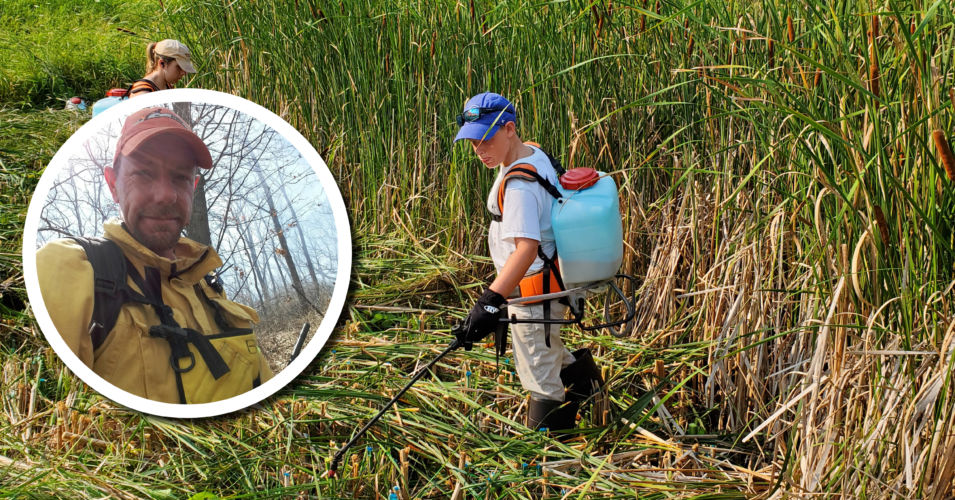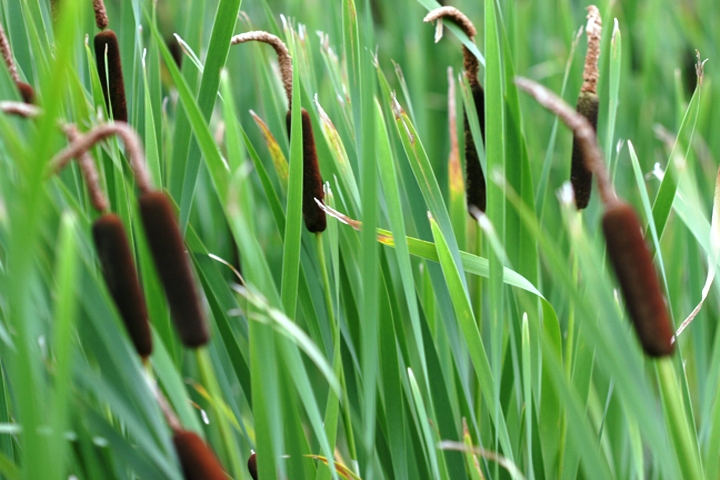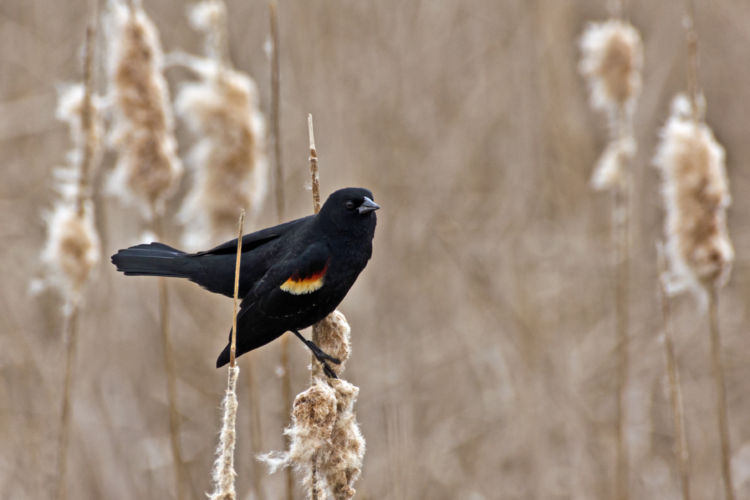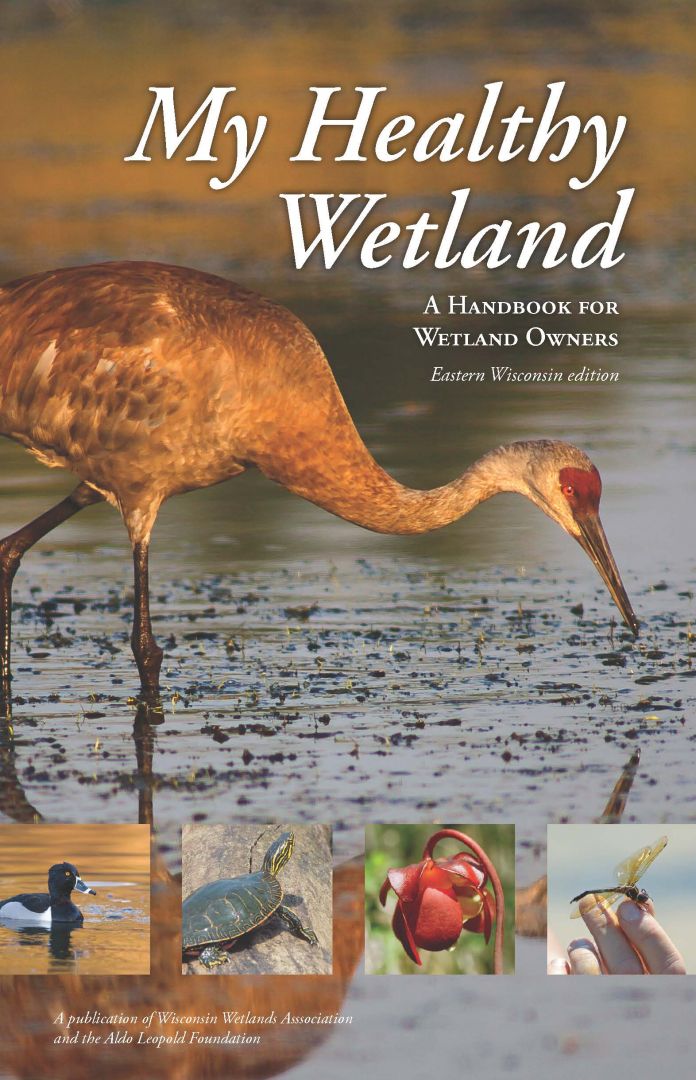Narrow-leaved cattail (Typha angustifolia) and hybrid cattail (Typha x glauca) are aggressive invaders of wetlands in Wisconsin. Integrated Restorations, LLC, has been evaluating the use of the selectively-targeted herbicide imazapyr (Polaris) for reversing cattail invasions in species-rich fen and sedge meadow wetlands of the Mukwonago River watershed in southeastern Wisconsin. The treatment protocol they developed reduced cattail stem densities by more than 99% with remarkable improvements in native wetland vegetation species richness, diversity, and floristic quality. Join Integrated Restorations operations manager and principal restoration ecologist Craig Annen to hear more about the research and its results and learn how this approach may help you control invasive cattail in your wetland.
Craig Annen, Integrated Restorations
Recorded December 10, 2021
Craig Annen earned his bachelor’s of science in environmental science and plant molecular cell biology from Edgewood College in 1998 and his master’s of science in aquatic botany from the UW-LaCrosse in 2001. His research interests include invasive species management, economical ecology, and mathematical ecology. Craig is senior ecologist and operations manager of the firm Integrated Restorations, LLC. He speaks fluent German, is a New York Yankees fan, and is a gourmet cook of Middle Eastern and German cuisine.
Links to some of the papers Craig mentioned in his presentation:
- Annen et al. 2019: Effects of Selectively-targeted Imazapyr Applications on Typha angustifolia in a Species-rich Wetland (Wisconsin)
- Annen 2008: Effects of Tillage and Growth Regulator Pretreatments on Reed Canarygrass (Phalaris arundinacea L.) Control with Sethoxydim
- Annen 2010: Prospects for Disrupting Rhizome Apical Dominance Prior to Chemical Treatment of Phalaris arundinacea
- Catovsky et al. 2002. Biodiversity and ecosystem productivity: Implications for carbon storage. Okios 97(3):443-448
- Steinbeiss et al. 2008. Plant diversity positively affects short-term carbon storage in experimental grasslands. Global Change Biology 14(12):2937-2949
- Wang et al. 2020. Negative impacts of plant diversity loss on carbon sequestration exacerbate over time in grasslands. Environmental Research Letters 15(10) (open access)
Related Content
Managing cattails with water level control
Using water level control can help to manage hybrid and narrow-leaved cattail.
Invasive plant profile: Cattails
Wetland Coffee Break: Toward more effective invasive species management: Part 1





